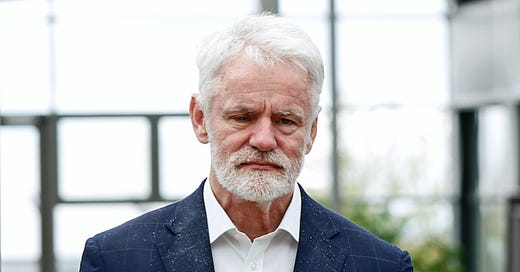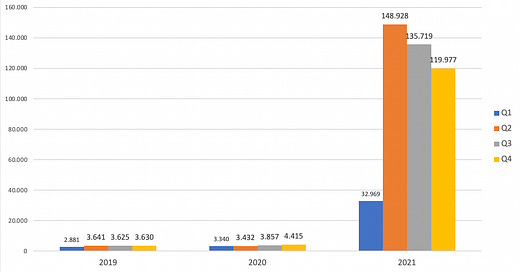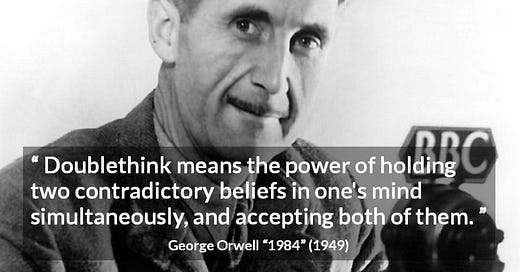

Discover more from From Symptoms to Causes
Isolation, Solitude, Loneliness
If society was ever ripe for full-fledged totalitarianism of a scale unprecedented in history, it is now.
Numquam minus solum esse quam cum solum esset.
(Never was he less lonely than when he was alone)
Cicero, De Re Publico I, 17
In the final chapter of The Origins of Totalitarianism, Hannah Arendt discusses the difference between isolation, solitude and loneliness in the context of totalitarianism and tyranny. A tyrant, Arendt says, strives to isolate people in order to prevent them from joining together in revolt or revolution. But for totalitarianism, this is not sufficient; a totalitarian society can be based only on loneliness, on a total lack of connectedness between individuals.
While solitude is a choice; man’s choice to be alone, in order to think and to act, “… totalitarian domination tries never to leave him alone except in the extreme situation of solitary confinement. By destroying all space between men and by pressing men against each other even the productive potentialities of isolation are annihilated …” Solitude is not possible.
The loneliness required by totalitarianism requires the abolition of common sense, which by Arendt’s definition is not in fact about rationality, but about experience: “Even the experience of the materially and sensually given world depends upon my being in contact with other men upon our common sense which regulates and controls all other senses and without each of us would be enclosed in his own particularity of sense data which in themselves are unreliable and treacherous. Only because we have common sense, that is only because not one man, but men in the plural inhabit the earth can we trust our immediate sensual experience.”
According to Arendt, loneliness has been the curse of the modern masses since the beginning of the industrial revolution.
During the past 30 months loneliness has been taken to the extreme, through isolation, distancing, masking, through the constant push for belief in an increasingly absurd narrative, through relentless gaslighting and censorship. If society was ever ripe for full-fledged totalitarianism of a scale unprecedented in history, it is now.











Not only Arendt. Berdyaev discusses this also. He agrees that the isolation of humans increased with Industrialism. Importantly though he found the nexus in the isolation of man from God. Capitalism builds off this isolation by turning men into objects.
Very interesting indeed. Somehow, I relate this subject to lack of self-awareness and poor leadership. In my managerial experience, both contribute to a dangerous confussion at an individual level which, in turn, expose people to a high level of manipulation. Especially when the manipulator despises human values.